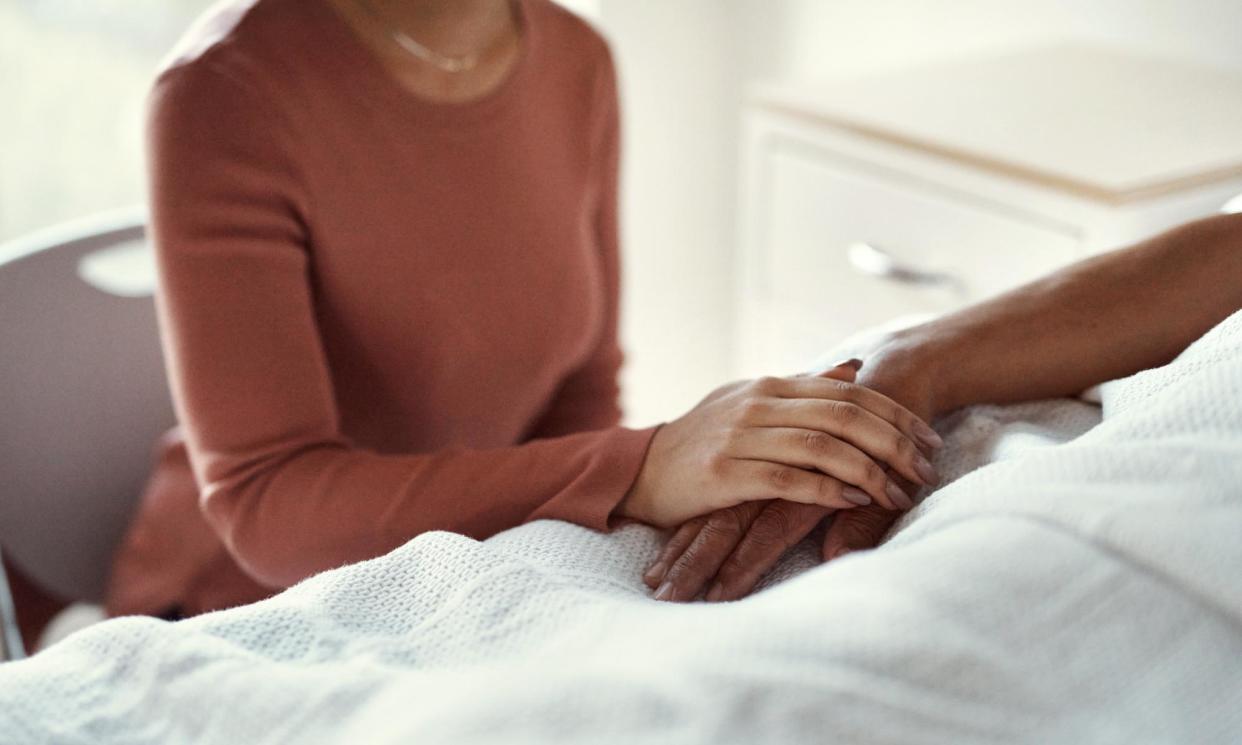To be present as a loved one died was an honour for us

I’m so sorry to hear about Adrian Chiles’s dad (It is a privilege to be present when someone dies. If only I’d seen it that way, it would have helped me no end, 10 April). It’s an incredibly sad time that I don’t think you can ever be prepared for. I sat with my mum while she died. She’d been ill with Alzheimer’s for a few years and lost her life at just 59. It was horrible.
But in the days after her death, I remember thinking that while it was awful and incredibly difficult to see (her death was a drawn-out one – she never did like saying goodbye), it was also a privilege to be there. I’ve never said that to anyone before writing this letter. I’ve never heard anyone else say it, so to read that really resonated with me, and I am grateful to Adrian for sharing it with us.
Name and address supplied
• I too had a moment to pause while reading Adrian Chiles’s article. It was by a pure accident of timing that I was able to be with my wife at the time of her death, which was unexpected and sudden. The pain and grief that I experienced in the aftermath of such a tragedy, along with trying to raise a young daughter alone, was all that concerned and consumed me. It was just now, 10 years later, while reading Adrian’s article, that I suddenly realised that it was an honour to hold my wife for the last time – that it was a moment to be cherished, even.
I have separated all the pain and heartache from that time and simply remember the privilege I was given to be there with my love. Thank you for sharing this, Adrian.
Richard Paulssen
Houston, Texas, US
• As a doctor who works with dying patients and their families, I cannot support enough the themes that Adrian Chiles has covered at a time when he is still grieving.
We have all the data in the world to show what matters – for example, A Picture of End-of-Life Care in England, and we are always producing more thanks to organisations such as Macmillan, for which I am an adviser on end-of-life care. What the data doesn’t do is bring out the emotions involved. We can do so much more by having open conversations as doctors, friends, families and as a society. We are all mortal, we all will die. I know what I want and have expressed my wishes clearly. I bang on about death all the time, but, like Adrian, I also bang on about life. Long may both continue.
Dr Ollie Minton
Brighton
• My sincere condolences on the death of your dad, Adrian. Don’t feel bad about talking or writing about it. It is a huge moment in your life. In the last two years I have nursed my mum and aunt, and I was present at both deaths. I think that it was a privilege, but a traumatic one. My mum’s death was long and harrowing, my aunt’s short and peaceful – both have had a profound effect upon me. It was my honour to be with them. Be kind to yourself, as grief takes as long as it takes. Some think that you should be back to normal in a month or two; they seem surprised when you are still struggling with grief months or years down the line.
As you say in your article, it is similar to childbirth. I’ve had two children: the first birth was a horror show that we both only just survived, the second straightforward. People who haven’t gone through it can’t understand the altered reality that these life-and-death situations put you into. After my son was delivered, I was filled with awe that every mother goes through this. I couldn’t believe how stoic mothers are, how they don’t scream from the rooftops about what they endured. The deaths were as life-altering, just a lot sadder. I wish you peace and acceptance.
Jayne Tomkins
Raw, North Yorkshire
• Have an opinion on anything you’ve read in the Guardian today? Please email us your letter and it will be considered for publication in our letters section.

 Yahoo News
Yahoo News 
